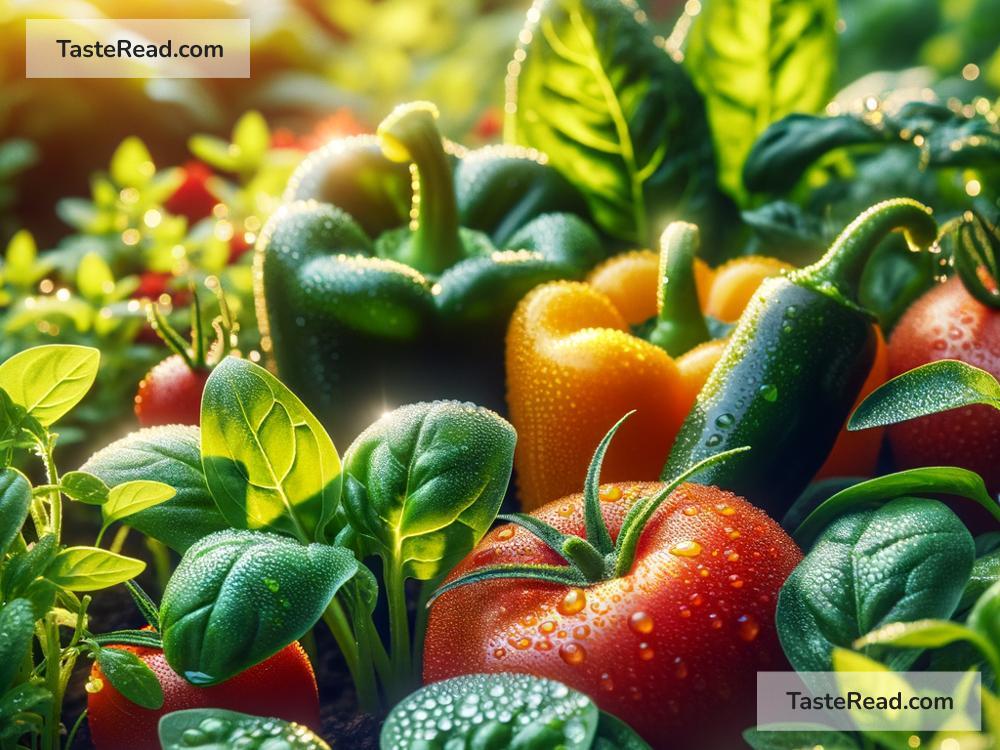The Role of Nitrogen in Enhancing Vegetable Flavor During Growth
Every time we bite into a ripe, juicy tomato or crunch on a crisp piece of lettuce, we appreciate the fresh, vibrant flavors that vegetables offer. But have you ever wondered what makes vegetables taste so good? While factors like sunlight, water, and temperature play their part, there’s a hidden hero in the soil: nitrogen. This essential nutrient plays a key role in helping vegetables not only grow well but also develop rich, delicious flavors.
In this blog, we’ll explore the role nitrogen plays in vegetable growth and how it contributes to the taste we all love. And don’t worry—we’ll keep it simple and easy to understand!
What Is Nitrogen?
Nitrogen is a vital nutrient that all plants need to grow. It is one of the primary building blocks of life and is found everywhere—in the air we breathe, in the soil, and even in our bodies. Plants absorb nitrogen from the soil through their roots. Once inside the plant, nitrogen helps it build proteins, enzymes, and chlorophyll (the green pigment necessary for photosynthesis). In short, nitrogen gives plants the energy to grow and thrive.
Why Is Nitrogen Important for Vegetables?
When growing vegetables, farmers and gardeners pay close attention to nitrogen levels because this nutrient impacts nearly every part of a plant’s development. Nitrogen influences the size, health, and even the flavor of vegetables. Let’s break this down:
-
Vegetable Growth
Nitrogen is fundamental for leafy, green growth. It helps vegetables like spinach, lettuce, and cabbage grow strong and produce lush leaves. Without enough nitrogen, plants can become weak, with yellowing leaves and slow growth. On the other hand, if there’s too much nitrogen, plants may grow large leaves but fail to produce flowers or fruits. This balance is important for high-quality vegetables. -
Nutritional Quality
Nitrogen allows vegetables to build proteins and amino acids. These molecules are essential for plant health and impact the nutritional value of the vegetables we eat. For example, nitrogen enables vegetables to synthesize vitamins and antioxidants. This makes them not only taste better but also healthier for us. -
Flavor Formation
Here’s where nitrogen becomes truly fascinating—it influences the natural flavors in vegetables. The taste of vegetables comes from chemicals produced in the plant, including sugars, organic acids, and secondary compounds. Nitrogen helps the plant create these flavor-packed compounds while maintaining a balance between sweetness and bitterness.
How Nitrogen Enhances Vegetable Flavor
The flavor of vegetables depends on the balance of many chemical elements, and nitrogen plays a key role in this balance. Here’s how it works:
-
Sugars and Sweetness
Nitrogen supports photosynthesis—a process where plants use sunlight to produce sugar. These sugars act as the plant’s energy source and impact the flavor of fruits and vegetables. For instance, nitrogen ensures tomatoes develop the right sugar levels for their signature sweet and tangy taste. Similarly, carrots and corn grown with proper nitrogen levels have a naturally sweeter flavor. -
Aromatic Compounds
Nitrogen contributes to the production of compounds that give vegetables their characteristic aroma and flavor. For example, onions, garlic, and leeks contain sulfur-containing compounds that provide their strong, savory flavors. Nitrogen encourages the plant’s metabolism to build these compounds during growth, ensuring you get that bold taste when you cook or eat them raw. -
Reduction of Bitterness
Some vegetables, like kale, broccoli, and spinach, can taste bitter if they don’t have enough nitrogen. When nitrogen levels are balanced in the soil, plants produce more sugars and fewer bitter-tasting chemicals, resulting in vegetables that are both nutritious and enjoyable to eat.
Finding the Right Balance
While nitrogen is essential, it’s important to get the balance right. Too much nitrogen can reduce vegetable flavor and even harm the environment. Excess nitrogen can cause plants to grow too quickly, making them watery and bland. It can also lead to runoff, which pollutes nearby water sources. On the other hand, too little nitrogen results in poor growth and lower-quality vegetables.
Farmers and gardeners use practices like soil testing to measure nitrogen levels and adjust fertilizers. Many use organic options, like compost or manure, to provide nitrogen in a sustainable way. These methods ensure the plants get the nutrients they need while maintaining soil health and environmental responsibility.
How Can You Help Your Vegetables Taste Better?
If you grow vegetables at home, there are a few simple steps you can take to improve their flavor:
- Test Your Soil: Use a soil test kit to check for nitrogen levels and other nutrients.
- Add Organic Matter: Compost and manure are excellent sources of nitrogen for your plants.
- Rotate Crops: Planting different vegetables each year can help keep your soil balanced and healthy.
- Water Correctly: Nitrogen dissolves in water, so keeping your plants hydrated is important for nutrient absorption.
Conclusion
Nitrogen might not be the first thing that comes to mind when you think about flavorful vegetables, but it plays a crucial role in enhancing their taste. This nutrient helps plants grow strong, produce sugars, and form flavor-packed compounds that make our food delicious. By ensuring healthy nitrogen levels in the soil, farmers and gardeners can grow vegetables that not only look good but taste great.
Next time you enjoy a sweet tomato or savory onion, take a moment to appreciate the science behind nature’s flavors—and the role nitrogen plays in delivering veggies you’ll love!

